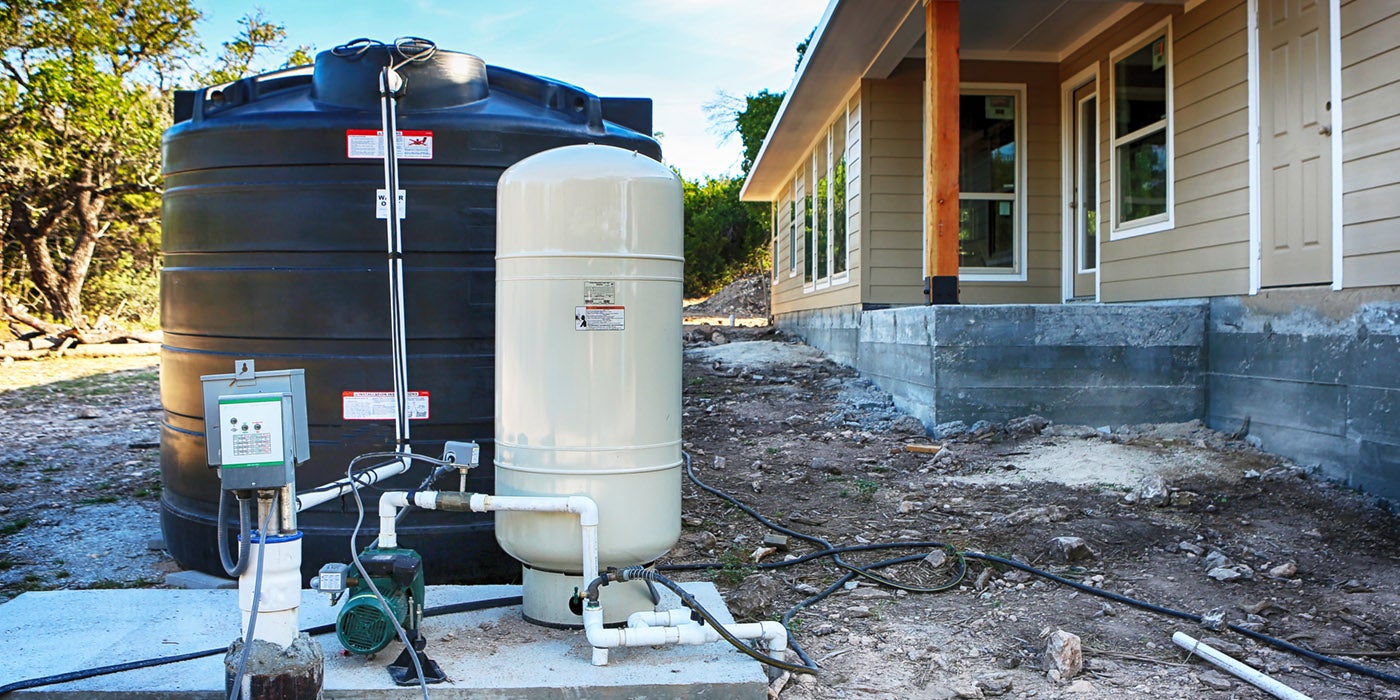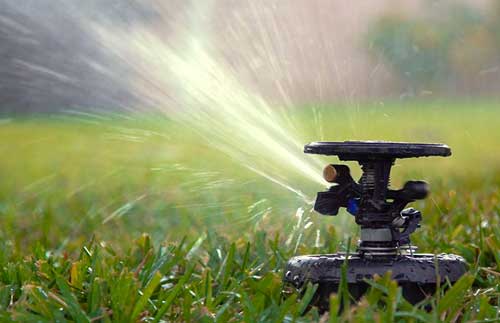Pros and Cons of Using Well Water for Irrigation

When it comes to irrigation, there are a few places to get your water. You can use tap water, well water, or even rainwater. There are advantages and disadvantages of each of these options to consider before deciding how to water your lawn or garden. In this article, we'll discuss the pros and cons of using well water for home irrigation.
What is well water and where does it come from?
Well water is water that is drawn from a well, which is a hole that is drilled in the ground to access groundwater. The water in a well can be either fresh or saline, depending on the surrounding soil and rock formations. It can be used to supply water for both residential and commercial purposes. Well water comes from underground aquifers. The quality the well water depends on the quality of the aquifer it’s sourced from, so it’s important to research water and soil quality before drilling a well.
Advantages of well water for irrigation
Using well water to irrigate your lawn or garden is a great way to save money on your monthly water bill. After your initial investment in drilling your well and installing a pump, the well water is free. You can also save money on your energy bill, as it takes less energy to pump water from a well than transporting water from a municipal water supply.
Using well water is also environmentally friendly since it doesn’t typically require chlorine or other chemicals commonly used to disinfect city water. And since well water is drawn from natural aquifers, using well water for irrigation helps to conserve municipal water supplies.
Problems with using well water to water your lawn
Well water can be a great choice for watering lawns in areas where municipal water is not available or is prohibitively expensive. However, there are some potential problems with using well water for irrigation.
 One issue is that wells can become contaminated from agricultural or industrial runoff that leaches into the groundwater. Well water should be tested regularly for pH levels and other minerals to ensure it is safe for irrigation. And do not use well water for irrigation if it is cloudy or contains visible sediment or algae.
One issue is that wells can become contaminated from agricultural or industrial runoff that leaches into the groundwater. Well water should be tested regularly for pH levels and other minerals to ensure it is safe for irrigation. And do not use well water for irrigation if it is cloudy or contains visible sediment or algae.
Another potential problem with well water is that it can contain high levels of iron or other minerals. This hard water can lead to staining on concrete or brick surfaces, as well as on your clothes if you’re doing laundry. If your well water is hard, you may be tempted to install a water softener. While this will remove some of the minerals from the water, it will also add salt to your water. This can become a problem if you’re using the water for irrigation, as too much salt can damage your plants.
Impact sprinklers are ideal for use with hard water and reclaimed water from roofs or creeks, as they do not clog easily. An in-ground impact sprinkler such as the Rain Bird AG-5 Maxi Paw and LG-3 Mini Paw can be beautifully concealed in your landscape irrigation design and pop up when called on to throw water a long distance to irrigate a large lawn.
Water pumped from a well often flows at an inconsistent rate and at lower pressures than city water. Therefore, when using well water you may need to adjust your irrigation system frequently to account for changes in the water pressure or supply. The Rain Bird LG3HE hose-end impact sprinkler is a good choice for use with lower water pressures and connects easily to your garden hose.
A well can run out of water during times of drought. While this isn’t necessarily a problem with the quality of the water itself, it can become a problem if you rely heavily on well water for all your irrigation needs. Make sure you have a reliable source of well water that can continue to provide enough water even during a long dry spell. If you're not sure how reliable your well is, have it tested and inspected by a professional before relying on it for irrigation.
What you should know about getting started
Overall, well water can be a great option for irrigation, but there are a few potential drawbacks to consider before making the switch. Because it is free and available in most areas, using well water for irrigation may be a tempting solution that can also help conserve municipal water sources. However, consult with your local water authority to find out if there are any restrictions on using well water for irrigation in your area.
